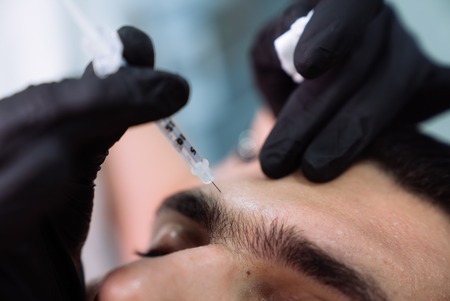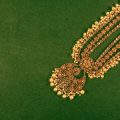Understanding Indian Skin Concerns Before Weddings
Indian weddings are a grand affair, and every bride and groom wants to look their absolute best on their big day. However, the unique Indian climate and fast-paced urban lifestyles often bring their own set of skin challenges, especially as the wedding date approaches. Among the most common concerns faced by Indian brides and grooms are dark spots, tanning, and pigmentation. These issues are not just cosmetic; they can impact confidence levels and make people feel less than perfect before one of the most important events of their lives.
The Indian subcontinent is known for its harsh sun, high humidity in certain regions, and varying pollution levels across cities. Daily exposure to these environmental stressors leads to increased melanin production, which manifests as uneven skin tone, stubborn dark patches, and persistent tan lines. While some might believe these problems affect only women, many Indian grooms also struggle with similar concerns due to long commutes, outdoor work, or sports activities.
Moreover, traditional pre-wedding rituals like Haldi (turmeric ceremony) and Mehendi involve natural ingredients that can sometimes irritate sensitive skin or highlight existing pigmentation if not managed well. The pressure to achieve flawless, glowing skin intensifies as wedding celebrations draw near. Therefore, understanding these prevalent issues and addressing them proactively becomes crucial for both brides and grooms.
Cultural Importance of Skin Brightening in Indian Weddings
When it comes to Indian weddings, the significance of skin appearance cannot be overlooked. Traditionally, fair and glowing skin has been associated with beauty, prosperity, and auspiciousness in Indian society. These beliefs are deeply embedded within rituals, customs, and even the expectations families have for brides and grooms. The desire for radiant skin is not merely an aesthetic choice—it is often perceived as a mark of good health and happiness, reflecting well on both the individual and their family.
Societal influences play a strong role in shaping these expectations. From ancient Vedic times to contemporary Bollywood culture, references to bright and flawless skin abound in poetry, songs, and wedding folklore. This emphasis is particularly visible during wedding ceremonies, where a bride’s or groom’s complexion is highlighted by traditional attire and elaborate jewellery. Family elders may recall age-old practices where home remedies like turmeric (haldi), sandalwood paste, and saffron milk are applied to enhance the skins glow before the big day.
Below is a table summarising some key rituals and their connection to skin appearance:
| Wedding Ritual | Purpose | Skin-Related Belief |
|---|---|---|
| Haldi Ceremony | Applying turmeric paste to bride/groom | Brightens skin, wards off evil eye |
| Ubtan Application | Herbal paste massage for cleansing | Removes tan & pigmentation, provides glow |
| Sandalwood Rituals | Sandalwood paste applied during poojas | Cools skin, evens out complexion |
| Milk & Saffron Baths | Bathing with milk infused with saffron | Lightens dark spots, nourishes skin |
The pressure to achieve fairer or more luminous skin can lead many brides and grooms to seek various pre-wedding treatments targeting dark spots, tanning, and pigmentation. While modern dermatological solutions are gaining popularity in urban centres, traditional remedies still hold a place of reverence in countless households across India. Understanding these cultural nuances helps explain why skin treatments are such an essential part of pre-wedding preparations.

3. Overview of Popular Indian Skin Treatments
India’s diverse approach to skin care, especially in the context of pre-wedding preparations, blends traditional wisdom with modern dermatological science. This unique combination caters to the varied concerns of dark spots, tanning, and pigmentation that are common among Indian brides and grooms. Here’s a look at some of the most popular treatments preferred across the country.
Ayurvedic Remedies
Ayurveda is deeply rooted in Indian culture, and its natural remedies remain a cornerstone for those aiming to achieve radiant, spot-free skin before their big day. Ubtan—an ancient herbal paste made from besan (gram flour), turmeric, sandalwood, and milk—is widely used for its exfoliating and brightening properties. Regular application helps reduce tan and lighten pigmentation, making it a staple in many pre-wedding routines.
Herbal Packs & Home Ingredients
Homemade face packs using local ingredients like multani mitti (Fuller’s earth), neem, tulsi, and aloe vera are also highly favored for treating stubborn dark spots and sun-induced pigmentation. These natural packs not only detoxify the skin but also soothe inflammation and gradually even out complexion. Brides and grooms often rely on these safe, chemical-free options to prepare their skin in the months leading up to their wedding.
Dermatologist-Recommended Solutions
For those seeking faster or more targeted results, dermatologist-recommended treatments have become increasingly popular in urban India. Chemical peels containing glycolic acid or lactic acid are commonly prescribed for fading pigmentation and improving overall skin tone. Laser therapies—such as Q-switched Nd:YAG lasers—offer advanced solutions for deeper pigmentation issues and stubborn dark spots. Dermatologists may also suggest topical creams with ingredients like kojic acid, vitamin C, or niacinamide for daily use.
Cultural Relevance & Accessibility
The choice between traditional and clinical treatments often depends on personal beliefs, skin type, budget, and accessibility. In smaller towns, ayurvedic clinics and home remedies still reign supreme due to cultural trust and ease of availability. However, metro cities see a rising trend towards professional dermatological services as awareness about advanced treatments grows.
Why These Treatments Matter Pre-Wedding
Ultimately, whether opting for an age-old ubtan or a modern laser session, Indian skin treatments play a crucial role in helping brides and grooms address dark spots, tan lines, and uneven pigmentation before their wedding festivities begin. The right combination of these methods ensures glowing confidence on one of life’s most celebrated occasions.
4. Ayurvedic and Home Remedies for Tan & Pigmentation
When it comes to pre-wedding skin prep in India, the trust in age-old Ayurvedic and home remedies is unparalleled. Generations have relied on ingredients easily found in Indian kitchens and gardens not only for their accessibility but also due to their proven efficacy and cultural significance. For grooms and brides looking to target dark spots, tan, and pigmentation before their big day, these methods continue to be a top choice—often used alongside or even preferred over modern cosmetic treatments.
Ubtan: The Quintessential Pre-Wedding Ritual
Ubtan, a traditional blend of natural powders and pastes, is a staple in Indian pre-wedding ceremonies. Made from ingredients like besan (gram flour), turmeric, sandalwood powder, rose water, and milk or curd, ubtan gently exfoliates dead skin cells while brightening the complexion. Regular application helps reduce pigmentation and tan, making the skin glow—a result every bride and groom desires before the wedding festivities.
Turmeric: The Golden Healer
Turmeric (haldi) isn’t just a spice; it’s an age-old beauty secret. Its anti-inflammatory and antioxidant properties help lighten dark spots, even out skin tone, and provide a natural radiance. This is why the ‘Haldi Ceremony’ holds such significance in Indian weddings—the ritual application is both symbolic and effective for achieving brighter skin.
Sandalwood & Curd Packs: Cooling and Clarifying
Sandalwood (chandan) paste has been celebrated for centuries for its cooling effect and ability to clarify the skin. When mixed with curd (dahi), which contains lactic acid, this pack can gently fade hyperpigmentation and soothe sun-damaged skin. Both ingredients are culturally accepted across communities due to their gentle yet visible results.
Comparison of Popular At-Home Remedies for Pre-Wedding Skin Care
| Remedy | Main Ingredients | Key Benefits | Cultural Acceptance |
|---|---|---|---|
| Ubtan | Besan, turmeric, sandalwood, rose water, milk/curd | Exfoliates, brightens skin, reduces tan | Integral to pre-wedding rituals nationwide |
| Turmeric Pack | Turmeric, honey/milk/curd | Reduces inflammation, lightens spots | Highly respected due to haldi ceremony tradition |
| Sandalwood-Curd Pack | Sandalwood powder, curd | Cools skin, fades pigmentation | Commonly used in North & South India alike |
Efficacy & Cultural Relevance
The efficacy of these remedies lies in their simplicity and consistency of use. Unlike chemical-based treatments that may cause irritation or require downtime, these at-home solutions are gentle enough for all skin types—especially important in India’s diverse climate conditions. Moreover, their cultural acceptance ensures that family elders often advocate these methods as part of the holistic wedding preparation process. By combining science-backed benefits with tradition, Ayurvedic and home remedies remain a cornerstone of Indian pre-wedding skincare routines.
5. Dermatological Procedures for Wedding-Ready Skin
When it comes to getting that flawless, radiant look before the big day, more Indian brides and grooms are turning to advanced dermatological procedures. Urban centres like Mumbai, Delhi, and Bangalore have witnessed a surge in clinics offering modern skin treatments specifically targeted at dark spots, tanning, and pigmentation issues common among Indian skin types.
Chemical Peels: A Popular Pre-Wedding Ritual
Chemical peels have become a go-to solution for many urban Indians prepping for their wedding. These treatments work by exfoliating the top layers of the skin to reduce hyperpigmentation, melasma, and sun-induced tan—concerns often exacerbated by the subcontinent’s harsh climate. Mild peels with glycolic or lactic acid are especially popular as they suit Indian skin tones and minimise downtime. Brides and grooms typically start these sessions months ahead of their wedding to ensure a naturally glowing complexion.
Laser Therapies: Precision Solutions for Pigmentation
Laser treatments such as Q-switched Nd:YAG and fractional lasers are making waves in India’s pre-wedding skincare scene. These technologies target deeper pigmentation, stubborn dark spots, and uneven skin tone—issues that topical creams often fail to address completely. While costs are higher than traditional remedies, urban Indians view these procedures as an investment in confidence on their special day. It’s not just about looking fairer; it’s about achieving healthy, even-toned skin under professional supervision.
Topical Medications: Science Meets Tradition
Alongside clinical procedures, dermatologists often prescribe topical medications like hydroquinone, kojic acid, or retinoids to further lighten pigmentation and prevent recurrence. These are tailored to suit Indian skin sensitivities and are increasingly preferred over homemade solutions. The integration of Western medicine with traditional Indian skincare philosophies is helping wedding-goers address long-standing concerns without risking side effects or unpredictable results.
The Rise of Urban Skincare Awareness
The popularity of these modern treatments reflects a broader shift in mindset among young Indians. With greater awareness about skincare science and access to certified professionals, couples today want more than just instant fairness—they seek lasting clarity and radiance. Importantly, this trend also underscores the importance of consulting qualified dermatologists rather than relying solely on salon facials or over-the-counter products.
Key Takeaway
In the run-up to Indian weddings, the demand for chemical peels, laser therapies, and prescription topicals highlights a cultural evolution where tradition meets technology. For those grappling with dark spots or pigmentation issues, these cutting-edge treatments offer hope—and a reliable pathway—to wedding-ready skin that truly glows from within.
6. Pre-Wedding Skin Care Routine: Timing & Precautions
When preparing for your big day in India, following a well-planned skincare routine is crucial, especially if you are concerned about dark spots, tanning, and pigmentation. The months leading up to your wedding should be dedicated to a holistic approach that not only targets your skin concerns but also ensures you avoid any last-minute skin mishaps.
Start Early: Building the Foundation
Ideally, start your pre-wedding skincare regimen at least 3-6 months before the wedding date. This gives enough time for professional treatments and home remedies to show results without putting your skin under stress. Early intervention is particularly important when addressing pigmentation and stubborn tan, which often require multiple sessions with dermatologists or skincare experts.
Safe Practices: No Compromises
Indian climate and pollution can be harsh on the skin. Always opt for trusted clinics and certified professionals for treatments like chemical peels, laser therapy, or microdermabrasion. Avoid experimenting with new products or facials close to the wedding as this can trigger allergic reactions or breakouts.
Sun-Protection: Your Best Friend
Never underestimate the power of sunscreen, especially in India’s tropical weather. Apply a broad-spectrum sunscreen of at least SPF 30 every morning, even if you’re indoors. Reapply every 2-3 hours when outdoors. Use scarves, hats, or umbrellas during peak sun hours to minimize further tanning and pigmentation.
Consulting Specialists: Personalised Guidance
No two skins are alike; consult a dermatologist or an experienced skin specialist for a customised treatment plan. They can recommend appropriate topical creams, oral supplements, or in-clinic procedures based on your specific needs. Regular follow-ups ensure adjustments are made in case of irritation or slow progress.
Avoid Last-Minute Treatments
Avoid scheduling aggressive treatments within two weeks of your wedding. Give your skin enough time to recover from any redness or peeling that may occur post-procedure. Focus instead on hydrating masks and soothing facials during the final fortnight to keep your glow intact without risking adverse reactions.
Holistic Approach: Mind & Body
Remember, Indian pre-wedding rituals can be stressful and hectic. Ensure you get adequate sleep, stay hydrated, eat balanced meals rich in antioxidants, and manage stress through yoga or meditation. Healthy lifestyle choices amplify the benefits of your targeted skin treatments and help you look your absolute best on the big day.
7. Realistic Expectations and Mental Well-being
While Indian skin treatments for dark spots, tan, and pigmentation offer significant improvements before weddings, it is essential to set realistic expectations regarding the results. Every individual’s skin type, genetics, and lifestyle play a role in how fast and how well the treatments work. Many grooms and brides-to-be are inspired by social media or relatives to expect flawless skin overnight; however, this is rarely achievable even with the best dermatological care. It is crucial to consult with experienced dermatologists who understand Indian skin and can outline practical timelines and outcomes.
Amidst the excitement of wedding preparations, societal and familial pressures can sometimes make you feel inadequate about your appearance. In India, where fair and radiant skin is often idealized, these pressures become more pronounced. Remember, the goal should be healthy, glowing skin rather than unrealistic perfection. Maintaining confidence comes from understanding that everyone has unique features and embracing your natural complexion. Positive body image starts with self-acceptance.
Discussing your concerns openly with family members can also help in reducing anxiety. If you find yourself overwhelmed, consider mental wellness practices like meditation or talking to a counselor. Ultimately, skin treatments are tools to enhance your look—not define your worth. Walk into your wedding festivities knowing you’ve made informed choices and are celebrating yourself, not just your skin.


